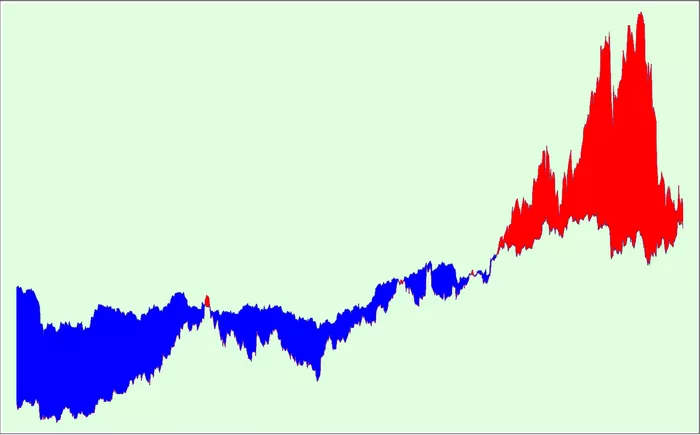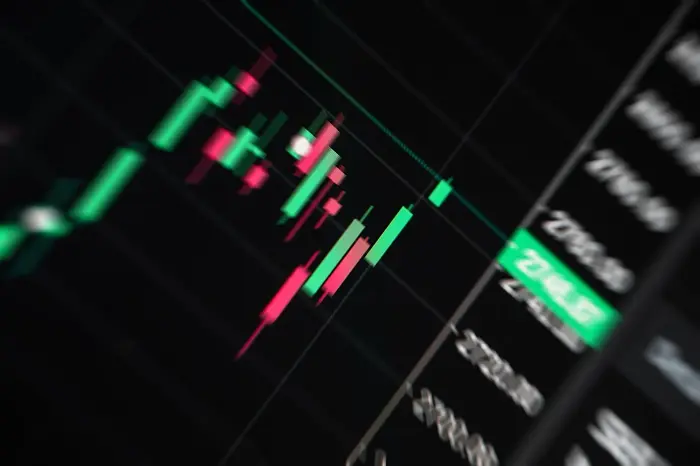When it comes to investing in international stocks, it’s common for investors to encounter multiple ticker symbols representing the same underlying company. A prime example of this is BYD Company Limited, a Chinese multinational company that manufactures automobiles, electric vehicles (EVs), batteries, and renewable energy solutions. The company’s stock is traded under different ticker symbols depending on the exchange.
In this article, we will explore the difference between two of BYD’s stock symbols: BYDDF and BYDDY. These ticker symbols may appear similar but have key differences in terms of trading platforms, market availability, and stock characteristics. Understanding these differences is essential for investors interested in adding BYD to their portfolios, whether they’re based in the United States or other global markets.
What Is BYD Company Limited?
Before diving into the specifics of BYDDF and BYDDY, let’s first understand what BYD is and why it has become a prominent player in the global market.
Company Overview
BYD Company Limited, founded in 1995, is headquartered in Shenzhen, China. It initially began as a rechargeable battery manufacturer but quickly expanded into the automotive industry, where it now focuses on electric vehicles (EVs). BYD is one of the largest manufacturers of electric vehicles in the world and is a leader in producing lithium-ion batteries. The company has a diverse portfolio, including electric buses, trucks, and passenger cars, and has heavily invested in renewable energy through solar power systems and energy storage solutions.
Global Impact
BYD’s global impact can be seen in its substantial presence in the electric vehicle market. The company is a direct competitor to global giants like Tesla, and its vehicles are sold in countries across Europe, Asia, and North America. Furthermore, BYD’s focus on sustainability through its clean energy solutions makes it a key player in the transition toward greener technologies.
Now that we have a basic understanding of BYD as a company, let’s explore the differences between the ticker symbols BYDDF and BYDDY.
What Are BYDDF and BYDDY Stocks?
Both BYDDF and BYDDY are American Depositary Receipts (ADRs) that represent shares in BYD Company Limited, but they are traded on different exchanges and have distinct characteristics.
What Is an ADR?
An American Depositary Receipt (ADR) is a financial instrument used by non-U.S. companies to trade their shares on U.S. stock exchanges. ADRs allow U.S. investors to buy shares in foreign companies without needing to purchase the underlying stock directly on a foreign exchange. Instead, the foreign company’s shares are held by a custodian bank in the United States, and the ADRs are traded as if they were regular U.S. stocks.
BYDDF Stock
BYDDF is the ticker symbol for the over-the-counter (OTC) ADR that represents BYD Company Limited’s ordinary shares. It is traded on the OTC markets, which are not as regulated as major U.S. stock exchanges like the NYSE or NASDAQ. OTC markets often feature stocks from smaller or foreign companies that do not meet the listing requirements for larger exchanges.
BYDDY Stock
BYDDY, on the other hand, is the ticker symbol for the ADR that is traded on the Hong Kong Stock Exchange (HKEX). This ADR allows U.S. investors to buy shares in BYD that are based on the company’s Hong Kong-listed shares. These shares are tied to the same underlying company, but they are purchased through different exchanges and have different liquidity profiles.
Key Differences Between BYDDF and BYDDY
While both BYDDF and BYDDY represent shares of the same company, there are important differences between them that investors should consider.
1. Trading Platforms
The primary difference between BYDDF and BYDDY is the platform on which each stock is traded. BYDDF is traded on the over-the-counter (OTC) market in the U.S., while BYDDY is traded on the Hong Kong Stock Exchange. The OTC market tends to have less regulatory oversight and lower liquidity than major exchanges like the NYSE or NASDAQ, which may impact the ease and cost of trading.
BYDDF: Traded on the U.S. OTC market.
BYDDY: Traded on the Hong Kong Stock Exchange.
2. Liquidity and Trading Volume
Liquidity refers to the ease with which a stock can be bought or sold without impacting its price. Stocks that are traded on larger exchanges, such as the Hong Kong Stock Exchange (HKEX) or the NYSE, tend to have higher liquidity because they attract more buyers and sellers. In contrast, OTC stocks like BYDDF often have lower liquidity due to a smaller pool of investors trading the stock.
BYDDF: Lower liquidity and trading volume due to being traded on the OTC market.
BYDDY: Higher liquidity and trading volume since it’s listed on the HKEX.
3. Regulatory Environment
The regulatory environment is another key difference between the two ticker symbols. Stocks traded on major exchanges, such as the Hong Kong Stock Exchange, are subject to stricter regulations and oversight by regulatory bodies such as the Hong Kong Securities and Futures Commission (SFC). This adds a layer of transparency and security for investors.
In contrast, the OTC market is generally less regulated, which can result in higher volatility and potential risks for investors. While BYDDF shares are still subject to some oversight by the U.S. Securities and Exchange Commission (SEC), the regulations governing OTC stocks are less stringent than those for stocks listed on major exchanges.
BYDDF: Subject to less stringent regulations and oversight, which can lead to higher risk.
BYDDY: Traded on the regulated Hong Kong Stock Exchange with stricter oversight.
4. Stock Price Differences
The price of BYDDF and BYDDY may differ due to variations in market conditions, trading volumes, and investor demand on each exchange. Stocks on OTC markets tend to have more price volatility because of lower liquidity, while stocks on larger exchanges like the HKEX usually have more stable pricing due to higher trading volumes and tighter spreads.
BYDDF: More price volatility and potentially larger spreads between bid and ask prices.
BYDDY: More stable pricing with narrower bid-ask spreads due to higher liquidity.
5. Dividends and Currency Differences
Since BYDDF and BYDDY are both ADRs based on BYD’s underlying shares, they may be subject to different dividend policies and currency exchange rates. Dividends paid on BYD’s Hong Kong-listed shares (under BYDDY) will typically be in Hong Kong dollars (HKD), whereas dividends on BYDDF shares may be paid in U.S. dollars (USD). Currency fluctuations between the U.S. dollar and the Hong Kong dollar could also affect the value of dividends for U.S. investors.
BYDDF: Dividends paid in U.S. dollars, subject to currency conversion rates.
BYDDY: Dividends paid in Hong Kong dollars, subject to exchange rate fluctuations.
6. Tax Implications
Investors should also be aware of the tax implications of owning BYDDF versus BYDDY. The tax treatment of dividends and capital gains may differ between U.S. and foreign stock exchanges. U.S. investors holding BYDDF shares may be subject to different tax rates on dividends compared to those holding BYDDY shares. Additionally, U.S. investors may need to file additional forms with the IRS when holding foreign securities.
BYDDF: Potentially different tax treatment for U.S. investors compared to foreign-listed stocks.
BYDDY: Subject to Hong Kong tax laws and regulations for dividend income, which may be subject to withholding taxes.
Which Stock Is Better for U.S. Investors?
The decision between BYDDF and BYDDY largely depends on the investor’s preferences and goals. Both ticker symbols represent shares in the same company, so the long-term performance and growth potential are similar. However, the differences in liquidity, regulatory oversight, and tax implications should influence an investor’s decision.
Considerations for Choosing BYDDF
BYDDF may be a good option for U.S. investors who prefer the convenience of trading on the OTC market. It provides direct exposure to BYD’s stock without the need to navigate foreign exchanges. However, the lower liquidity and higher price volatility may make it less attractive for those who prioritize stability.
Considerations for Choosing BYDDY
BYDDY is likely a better choice for investors who prefer to trade on a regulated exchange with higher liquidity. The Hong Kong Stock Exchange offers greater stability and potentially more accurate pricing. Additionally, investors who are comfortable with the potential for currency fluctuations and want access to dividends in Hong Kong dollars may prefer BYDDY.
Conclusion
In summary, BYDDF and BYDDY are two ticker symbols representing shares in BYD Company Limited, but they differ in terms of trading platforms, liquidity, regulatory oversight, and tax implications. U.S. investors have the option to choose between BYDDF, which is traded on the OTC market, or BYDDY, which is listed on the Hong Kong Stock Exchange.
The choice between the two will depend on the investor’s preference for liquidity, market stability, and tax considerations. Ultimately, both BYDDF and BYDDY offer U.S. investors a chance to gain exposure to BYD, a leader in the electric vehicle and renewable energy sectors, but each has its own set of advantages and risks. Understanding these differences can help investors make an informed decision based on their individual investment goals and risk tolerance.
Related topics:

































